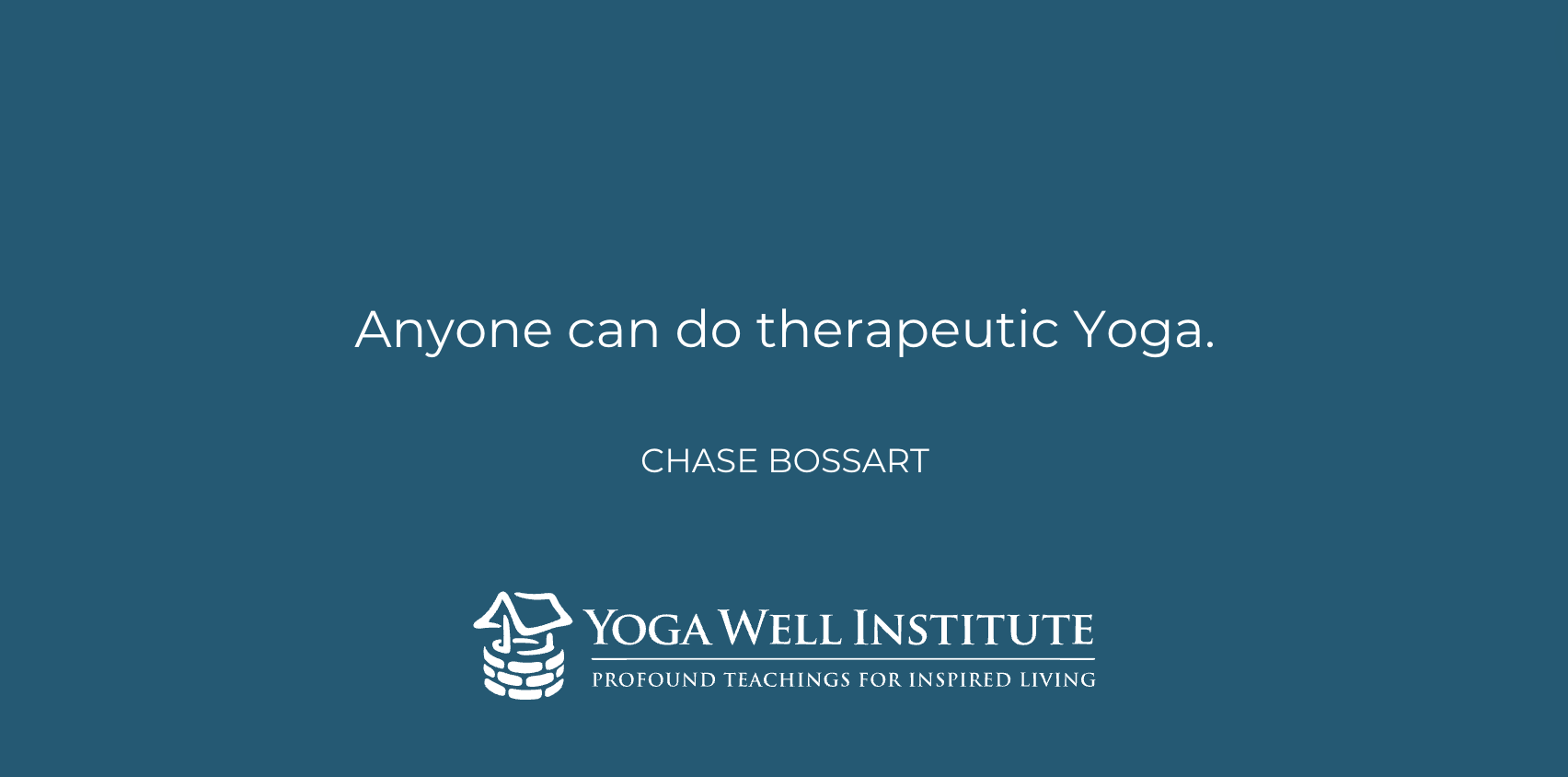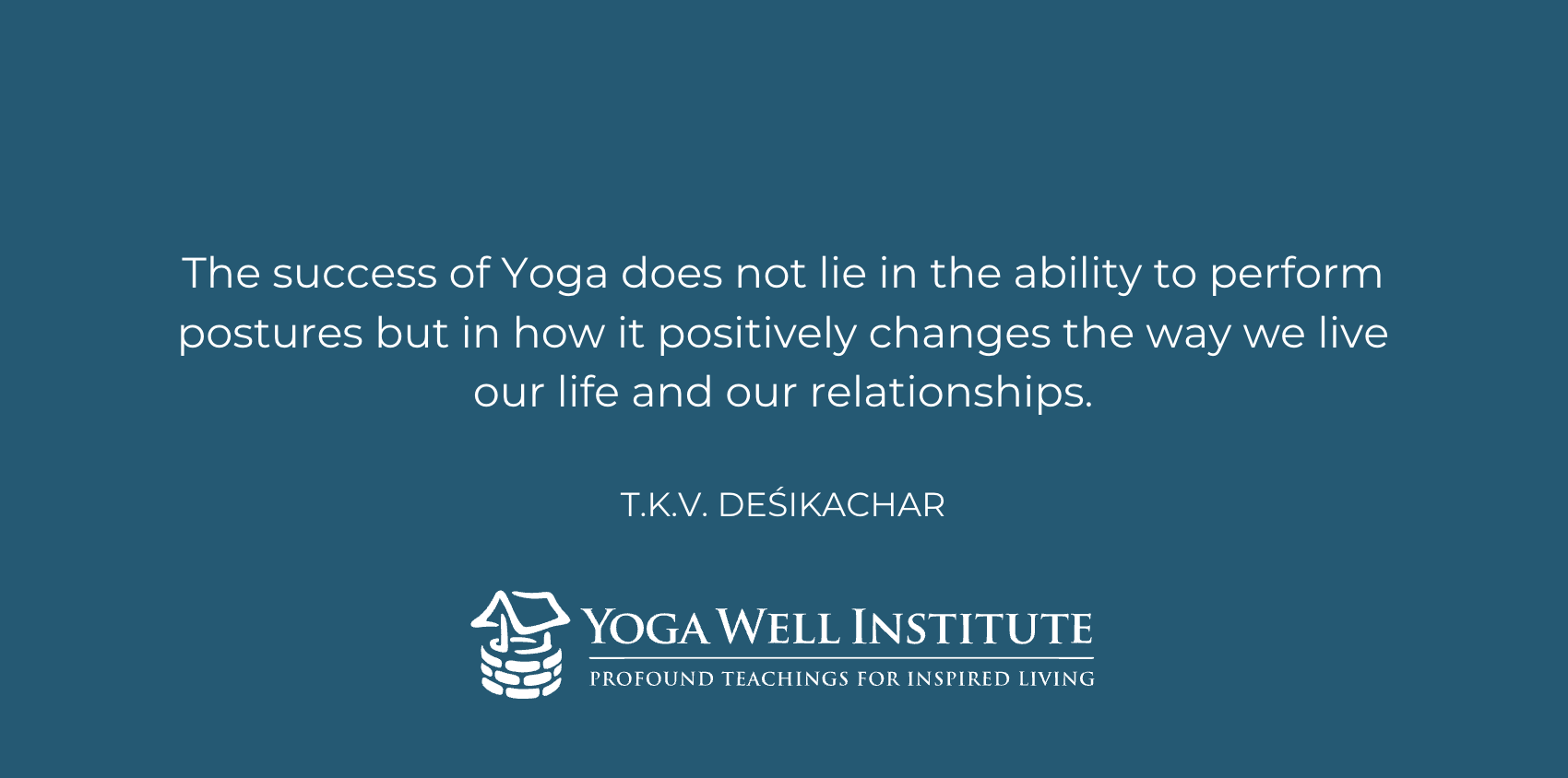When I tell people that I work as a Yoga Therapist, I often have to explain what that means. People know what Yoga is, but Yoga as a healing modality is something they want to know more about. They ask, “What is Yoga Therapy?”
Essentially, Yoga Therapy uses the tools of Yoga, like physical movements and postures, conscious breathing, sound exercises, and meditation, in modified forms that are appropriate to therapeutic situations and healing. This definition makes sense if you’re already familiar with Yoga Therapy.
If you’re familiar with Yoga, you can probably think of a few easy Yoga poses. You might imagine some modifications of body position or breathing that could make a posture accessible to someone who is in pain or has a chronic illness. But this does not really capture what Yoga Therapy is or how it can be used.
The Role of Balance
Yoga Therapy, like Yoga, begins with the idea that your body and mind have a natural state of balance, a sort of equilibrium, where it functions best. When your body goes out of balance, your entire system – your mind, emotions, even your behaviors – functions differently. Generally speaking, the further out of balance you are, the more improperly your body and mind functions, and that can cause illness.
Symptoms might be physical, like stiffness or pain. You might have constipation or difficulty falling asleep. Commonly, it manifests as a change in energy, like fatigue or difficulty getting up in the morning. It might also be mental, like difficulty concentrating or remembering details, or emotional, with feelings of anxiety, frustration, or unexpected sadness. Frequently, some combination of the above manifests together.
Who Can Benefit from Yoga Therapy?
When you’re out of balance, your body and mind function differently; they function from a place of ‘illness’ or ‘disease’. One of the main goals of Yoga Therapy is to re-establish that equilibrium as best as possible, to bring the functioning of your body and mind back towards normal. The more you accomplish that, the better you will feel and function.
This truth applies to everyone, including those who cannot return to full health, such as chronic or terminal illness. Even if it is not possible to return to full balance, any effort to improve balance will help. People who work with a Yoga Therapist come from a wide range of maladies, from back pain to Parkinson’s to terminal cancer and everything in between. When Yoga Therapy does not cure the physical condition, it still improves the functioning of the person and often heals something in their emotions. Yoga Therapy can truly benefit anyone.

Who Can Do Yoga Therapy?
The only prerequisites for Yoga Therapy are that the person is:
- conscious, and
- willing to do it.
Since the tools of Yoga Therapy are the various parts of the person – their body, breath, voice, and mind – nothing more than the person is required. You don’t need special clothing, props, herbs, or anything else. The person is asked to do things with their body that the Yoga Therapist knows will bring them back toward balance. It can be as simple as softly repeating ‘aaahh’ with each exhale and working to extend the length of each exhale a little each time. Truly, anyone can do therapeutic Yoga.
How Does Yoga Therapy Work?
Yoga Therapy mimics the ways your system moves, breathes, and focuses when it is balanced. For example, when balanced, your breathing will be long and smooth. When you are imbalanced, your breath will be shorter and shallow. Simply extending the length of the breath can bring the person back towards balance in a powerful way. The rest of your body and mind will follow if you stay with it.
Yoga Therapy has a tremendous impact on a wide range of conditions provided that techniques can be found that are comfortable and hold the attention of the person. A Yoga Therapist adapts the techniques to meet the capacities and needs of the individual. If the person is unable to breathe comfortably, the Yoga Therapist will find a different access point for bringing the system back toward balance, such as meditation.
Yoga Therapy modifies the tools of Yoga for therapeutic settings, and it involves much more than that, as well. Truly, it should be thought of as a science of intentionally-engineered experiences. A science that understands how different experiences influence the way that our bodies, minds, and emotions work and which works through the creation of experiences to effect those changes.

You might be asking yourself, where can I find a Yoga Therapist near me?
There is no “one size fits all” in Yoga. Your needs, capabilities, interests, and circumstances are unique to you, just as your practice should be. Receiving guidance from an experienced Yoga Therapist is the best way to develop a long-term Yoga practice that is personalized for you. Your Therapist designs your daily practice (and revises it, as you evolve). This is a profoundly nourishing, healing, and personal process.
At the Yoga Well Institute, we believe working with a Yoga Therapist and the healing that happens in and through this relationship is the essential heart of Yoga practice.
We offer a Mentor Matching service (at no charge) to help continue the ongoing teacher-student link that we also have been recipients of. It is a small way to appreciate the care, effort, and love of all those who have cared for these precious teachings down through the ages and have thus given us an opportunity to benefit from them as well.
Looking for more?
To hear more fresh perspectives on what Yoga is, how it transforms the body and mind, and liberates your life tune into the Yoga Well Podcast! Within the Yoga Well Podcast we will share teachings from the Viniyoga lineage of Mr. TKV Desikachar, while exploring Yoga as a way of being that is practiced both on the mat and in our everyday life.

Chase Bossart
M.A., C-IAYT, E-RYT 500
Executive Director of the Yoga Well Institute, Chase has been studying Yoga, Sanskrit, eastern philosophy and religion for nearly 30 years. He had the opportunity to personally study with Mr. TKV Desikachar and serve as a teacher at the Krishnamacharya Yoga Mandiram.




